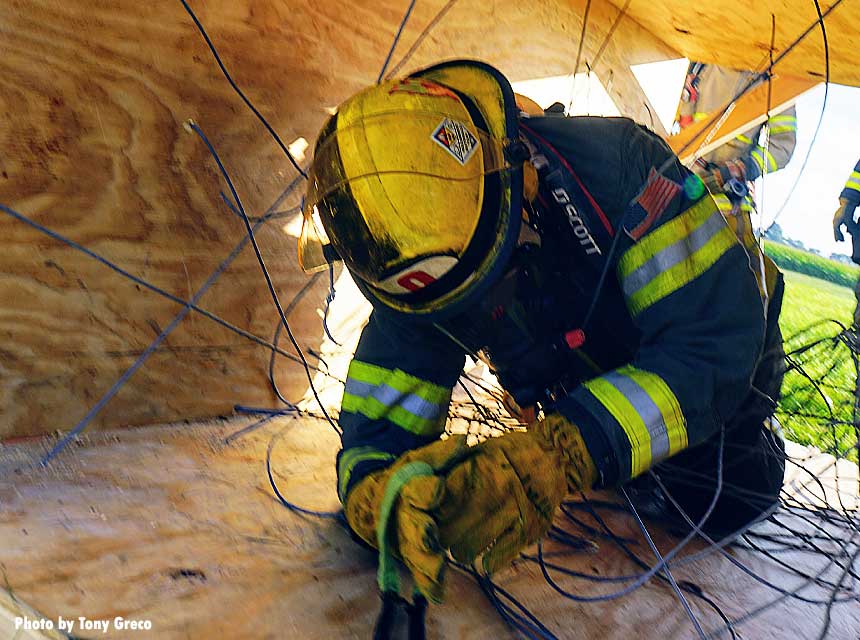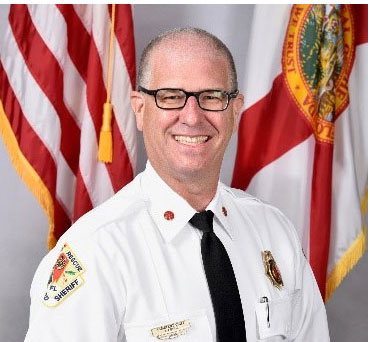Your members must be physically prepared, since any day could be ‘game day’

On a recent podcast interview, we were discussing the notion of tactical athletes—namely, that firefighter performance of essential job functions is equivalent to the demands placed on professional athletes. Increasingly, the fire service has embraced the notion that firefighters must be tactical athletes to perform effectively and safely on the fireground. Elements of this include strength, endurance, aerobic capacity, and agility, amongst other characteristics. These elements do not simply develop by chance but require a committed regime of human performance training. During the recent podcast, a chief with more than four decades of fire service experience made a comment that stuck a chord with me: unlike professional athletes such as National League Football players, we as firefighters don’t have a “game day” scheduled every Sunday for a large viewing audience to observe our performance on the field. For firefighters, it is not a matter of if, but when.
When we think of the preparation of tactical athletes, we do not think of what has been reported in the fire service literature by Dr. Sara Jahnke and others—that the fire service has an obesity epidemic.
Obesity increases the likelihood of various diseases and conditions, particularly cardiovascular diseases, Type 2 diabetes, obstructive sleep apnea, certain types of cancer, osteoarthritis, and depression. Firefighters have 13 essential job tasks that must be performed according to National Fire Protection Association (NFPA) 1582, Standard on Comprehensive Occupational Medical Program for Fire Departments. Firefighters’ essential job functions are measured in “Metabolic Equivalent of a Task” values (“MET” values). This is the rate of oxygen consumption during a task as compared to resting and can be used to compare levels of exertion across various types of activities. As a reference point for most, humans at rest consume one MET. NFPA Standard 1582 speaks to an aerobic capacity of 12 MET or below as a medical condition for a firefighter. The reality of firefighting is that search and rescue activities under smoke conditions require 16 METS. As a comparison, professional football players operate in the oxygen consumption range of 15-16 METS, while it has been measured that professional soccer players operate at 17-18 METS. So, yes, the reality is that you as a firefighter are expected, through performing essential job functions, to be on part with a professional athlete—or, more appropriately, a “tactical athlete.”
So where do we go from here? Well, first we must acknowledge that unlike an NFL athlete that performs for game day and may suffer injury, on the fireground being physically unprepared may lead to catastrophic consequences. In fact, a study published in 2014 by Yang et al. that examined NIOSH firefighter fatality data found of those sudden cardiac deaths, 63 percent were obese. So proper preparation and maintenance is key to survival. That includes functional fitness, hydration, nutrition, NFPA 1583 fitness assessments as part of your annual medical exams, and sleep hygiene. Additionally, we need comprehensive annual early detection first responder physicals that identify modifiable risk factors and underlying health risk that may be lurking within our bodies that can be addressed before tragedy strikes.
As first responders, we need to treat every day as “game day”…since today could be the day.

Todd J. LeDuc, MS, CFO, FIFirE, retired after nearly 30 years as assistant fire chief of Broward County, Florida, an internationally accredited career metro department. He served as chief strategy officer for Life Scan Wellness Centers, a national provider of comprehensive physicals and early detection exams. He has served as a member of the International Association of Fire Chief’s Safety, Health & Survival Section for over a decade and is currently secretary of the section. He is a peer reviewer for both professional credentialing and agency accreditation. He is editor of Surviving the Fire Service (Fire Engineering Books) and serves on numerous advisory boards and publications. He can be contacted at Todd. LeDuc@lifescanwellness.com.
MORE
Transformational Change and Fire Service Survival
Obesity in the Fire Service: A Tale of Two Camps of Firefighters

